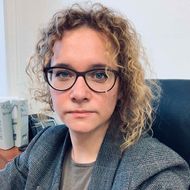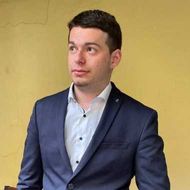- A
- A
- A
- ABC
- ABC
- ABC
- А
- А
- А
- А
- А
- HSE University
- Faculties
- Faculty of Social Sciences
- School of Psychology
- Events
- Virtual Reality: creating an environment for recovery and therapy
-
Education
-
The School
- About
-
Laboratories
-
- The Scientific-Educational Laboratory of Ability Psychology
- Center for Sociocultural Research
- International Laboratory of Positive Psychology of Personality and Motivation
- Laboratory for Cognitive Research
- Cognitive Psychophysiology Laboratory
- Vision Modelling Laboratory
- Laboratory for the Neurobiological Foundations of Cognitive Development
-
- Partners
- Staff Members
- International Cooperation
Phone: +7 (495) 772-95-90 *15366
Email: dekpsy@hse.ru
Address: 101000, Moscow, Armyanskiy per. 4, c2
Address for correspondence: 20 Myasnitskaya Ulitsa Moscow 101000 (School of Psychology)
In press
Popyvanova A., Pomelova E., Bredikhin D. et al.
IEEE, 2024.
Acar S., Balayar B., Ozcelik H. N. et al.
Journal of Creative Behavior. 2024. Vol. 58. No. 4. P. 755-776.
In press
Perevoznyuk G., Ragimova A., Батов А. А. et al.
In bk.: 2024 Sixth International Conference Neurotechnologies and Neurointerfaces (CNN). IEEE, 2024. P. 140 - 143.
Ivanova M., Germanova K., Petelin D. et al.
Biorxiv. 005140. Cold Spring Harbor Laboratory, 2024
The School promotes cutting-edge research, multidisciplinary studies, education in English. We are increasing the number of courses in English all the time and have started two English-speaking Master’s Programs. Our researchers have access to Eye trackers, TMS, multi-channel EEG, MEG and fMRI techniques.
The School also aims to train psychologists, who can apply their knowledge in the fields of economics, banking, human resources management, organizational development, ecopsychology and team-building.

Virtual Reality: creating an environment for recovery and therapy
Moderator: Sofia Reznichenko, PhD, Senior Researcher at the HSE Institute of Salutogenic Environment Psychology.
The seminar will present the PsyTechVR virtual reality technology developed and tested for the work of a psychologist. It allows you to create different environments. Immersion in the environment designed by the client/patient can provide a sense of comfort and safety, since it uses a unique technology for modeling space according to individual characteristics. This "comfortable place" becomes the technology for stress management and recreation. On the other hand, the therapeutic effect of an "uncomfortable" virtual environment with developed preset parameters has shown effectiveness in terms of exposure and desensitization in the treatment of phobic disorders and PTSD.
In the second part of the seminar, a presentation of immersion in virtual environments with a unique opportunity for external (visible) monitoring and control of stay in VR will be held for laboratory staff and seminar guests.
At the end of the seminar, a discussion is planned on the prospects, limitations and possibilities of using Russian VR developments in the field of environmental psychology, stress psychology, other branches of psychological science and therapeutic purposes.
Online broadcast
Идентификатор конференции: 886 1756 1466
Код доступа: 703995
- About
- About
- Key Figures & Facts
- Sustainability at HSE University
- Faculties & Departments
- International Partnerships
- Faculty & Staff
- HSE Buildings
- Public Enquiries
- Studies
- Admissions
- Programme Catalogue
- Undergraduate
- Graduate
- Exchange Programmes
- Summer Schools
- Semester in Moscow
- Business Internship
-
https://elearning.hse.ru/en/mooc/
Massive Open Online Courses
-
https://www.hse.ru/en/visual/
HSE Site for the Visually Impaired
-
http://5top100.com/
Russian Academic Excellence Project 5-100
- © HSE University 1993–2024 Contacts Copyright Privacy Policy Site Map
- Edit


